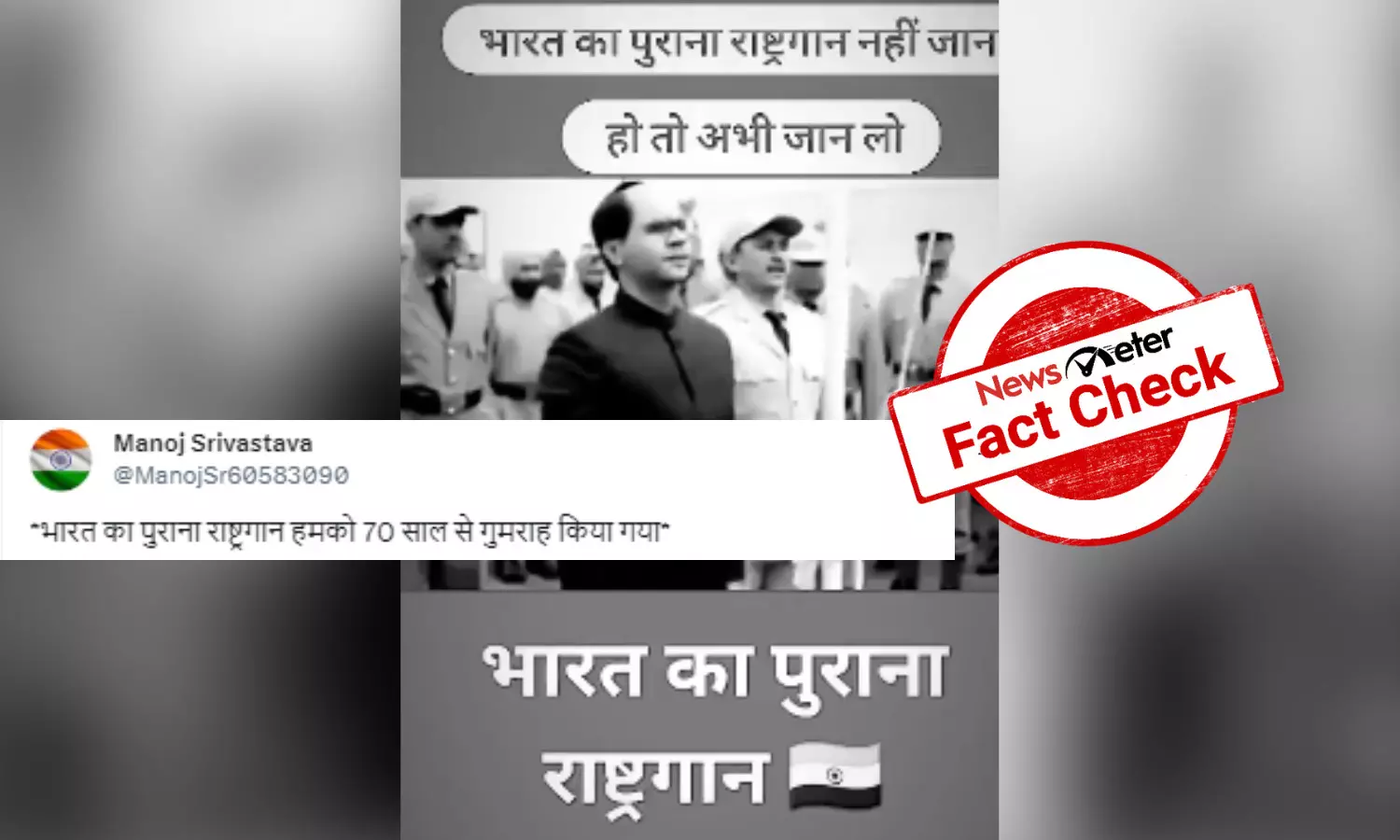Was Netaji’s ‘Subh Sukh Chain’ the old National Anthem of India? Read the fact-check
The song, “Subh Sukh Chain” is the Hindustani translation of Rabindranath Tagore’s “Bharoto Bhagyo Bidhata” written in Bangla.
By Md Mahfooz Alam
Screengrab of the misleading post. (Source: X/@ManojSr60583090)
A video of actor Raj Kumar Rao playing the role of freedom fighter Subash Chandra Bose and singing the song “Subh Sukh Chain” is viral on social media with the claim that the song was the old national anthem of India.
“We have been misled for the last 70 years. This is the old National Anthem of India,” wrote an X user who shared the video.
Fact Check
NewsMeter found that the claim is misleading. The song, “Subh Sukh Chain” is the Hindustani translation of Rabindranath Tagore’s “Bharoto Bhagyo Bidhata” written in Bangla.
We found the extended version of the viral video published by the verified YouTube channel, Altt Balaji on December 5, 2017. The song features in the TV series, “Bose: Dead/Alive."
We then searched for the song “Subh Sukh Chain” and found an article by the Times of India from January 28, 2022. According to it, the song is the Hindustani translation of Tagore’s “Bharoto Bhagyo Bidhata” penned in 1905. Bose, who founded the Indian National Army (INA), also known as the Azad Hind Fauj, announced the formation of the provisional government of free India on October 21, 1943, adopting ‘Subh Sukh Chain” as the National Anthem of the INA government in exile.
“Jana Gana Mana”, the Hindi translation and “Subh Sukh Chain”, the Hindustani version of Tagore’s “Bharoto Bhagyo Bidhata", is set in the same tune. It also mentioned that the Hindustani version was translated by Hyderabad’s Abid Hasan Safrani, an INA officer. Safrani was born in 1911, the same year Tagore translated “Bharoto Bhagyo Bidhata" to its Hindi version“Jana Gana Mana".
According to a report by News18, since “Bharoto Bhagyo Bidhata” was written in Sanskritized Bengali, Netaji got it translated into easy Hindustani from Mumtaz Hussain of Azad Hind Radio and Col Abid Hasan Saffrani of INA. It also mentioned that on the instruction of Netaji, Capt Ram Singh’s band gave a martial touch to the song.
“Netaji attached great significance to music as a source of inspiration for a force that was being prepared to fight till the finish. I distinctly remember that day in 1943, when Netaji came down to the then INA broadcasting station at the Cathay Building in Singapore and asked me to compose music for a song translated from Rabindra Nath Tagore's original Bengali score. He asked me to give the song a martial tune that would not put people to sleep but awaken those who were sleeping,” Captain Ram Singh had said in an interview with Rediff.
Thus, it is evident that both “Jana Gana Mana" and “Subh Sukh Chain” derive their origin from Tagore's original version of “Bharoto Bhagyo Bidhata”, written in Bangla. Hence, we conclude that the claim that the Subh Sukh Chain was the old National anthem is misleading.